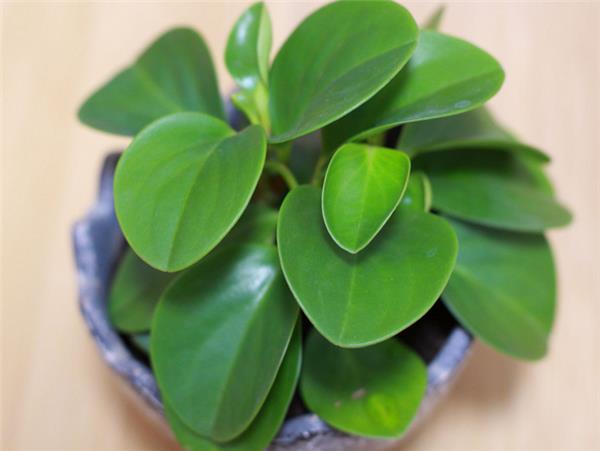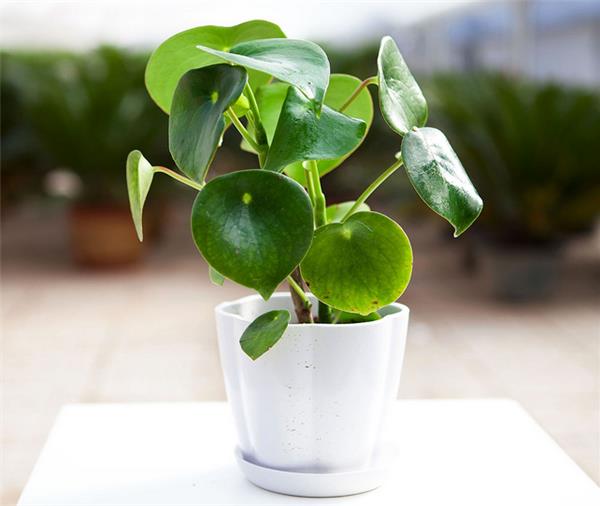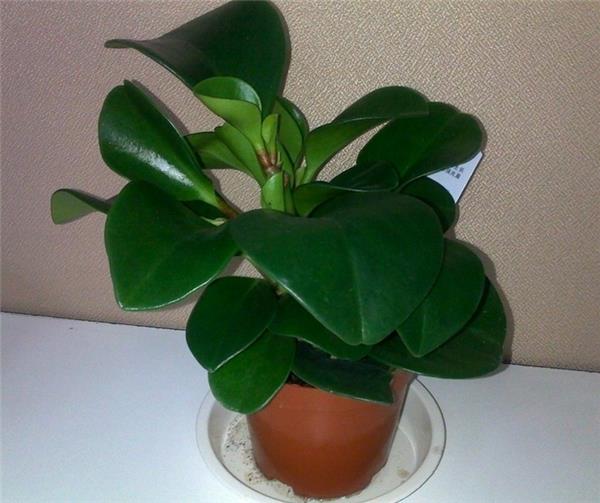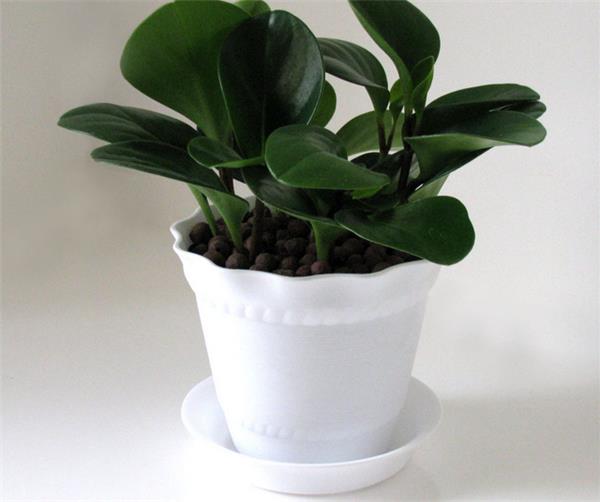Culture methods and matters needing attention of Jasper
Jasper, also known as Douban Green, is a perennial herb, its size is small, the whole plant height is about fifteen to twenty centimeters, so it is very suitable for placing on the indoor small table, or with a few pots of jasper placed on the wrought iron flower rack, below we want to introduce Jasper breeding methods and precautions.

The cultivation method of jasper
Matrix: like to grow in loose fertile, well-drained and humus-rich sandy soil, in clay growth potential is poor. Generally, the prepared substrate can be mixed with moldy leaf soil + river sand + a small amount of decomposed organic fertilizer. If conditions permit, peat soil and pearlite can be mixed for cultivation.
Light: likes half shade or scattered light, in addition to winter needs sufficient light, other seasons need a little shade, especially in summer more need shade. If placed in a shady environment, easy to grow, growth between branches, ornamental reduction, is also undesirable. Under semi-shade conditions, the leaves are brighter and more shiny, especially the variegated varieties, which require a little more sunlight.
Temperature: Hi warm environment, growth temperature is between 20-30℃, winter temperature is best kept above 10℃, stop growth below 10 ℃, easy to freeze below 5℃.

Humidity: like humid growth environment, in the humidity of the environment conditions of luxuriant growth, bright leaves, high temperature or dry air to strengthen the foliage spray or watering in the growth environment to maintain a high air humidity, the growth of plants is extremely beneficial. It can also adapt to short-term dry environment, but not for a long time, generally should be maintained at about 70%.
Watering: more like water, not drought resistance, in the growth period to frequent watering, temperature higher than 25℃ or dry air to water more, but also to prevent waterlogging, temperature lower than 25℃ to pot soil surface dry when re-watering, temperature lower than 10℃, can be dry for several days without watering can also be tolerated.
Fertilization: When the temperature is higher than 18℃, a small amount of fertilizer is needed. When the temperature is lower than 18℃ or higher than 30℃, it is appropriate to apply less or no fertilizer. It is best to apply fertilizer in a small amount many times. It is best to irrigate with diluted fertilizer instead of clear water. It is not tolerant of raw fertilizer and concentrated fertilizer. It is easy to cause fertilizer damage. Foliar fertilizer can also be sprayed for fertilization, and the effect is good. Nitrogen and potash fertilizer are the main fertilizers, phosphorus fertilizer is the second.

Jasper farming precautions
(1) In spring and summer, you can pick the growing point of the plant slightly to promote more branches and make the plant appear more prosperous. But be careful not to remove too many flowers, or the plant may not bloom too many.
(2) High temperature and humidity in summer. Jasper leaves have leather quality, can prevent part of the water transpiration, therefore, the environmental humidity requirements are not too high. High temperature and humidity are not conducive to its growth, light leaves appear spots, heavy ones appear rot.
(3) Irrigating Jasper with cold water in winter will cause the stems and leaves to rot. Therefore, to use lukewarm water, too cool tap water to dry for a day or two before use.
(4) Jasper is not cold-resistant, avoid low temperature, winter room temperature can not be lower than 10℃, otherwise, Jasper leaves will appear pockmarks, and then rot.
(5) Death of leaf tips and margins: sudden drop in temperature. Cut off the diseased leaves and move the plant to a warm place.
(6) Leaf wilting, stem rot or leaf back spots: excessive watering, especially in winter. Move plants to warm and sunny places, cut off diseased parts, water less, and keep pot soil slightly dry.
(7) The type of leaf hypertrophy suddenly leaves off: the pot soil is too dry. Pay attention to watering before the leaves wither, and the pot soil should not be too dry.

Prevention and Control of Diseases and Pests in Jasper Culture
1. Jasper leaf spot disease
Symptoms and damage: chlorotic spots appear on the leaves at the early stage of the disease, gradually expanding into nearly circular spots, 4~ 10mm in diameter, brown; at the later stage of the disease, the spots become grayish brown to grayish white, the edges of the spots are light brown, and the spots are covered with black spots.
Jasper pest control pictures
Pathogenic characteristics: Pathogens overwinter on diseased leaves or diseased bodies; transmitted by rain or water drops. Extensive management, lack of water, lack of fertilizer, poor greenhouse ventilation, high humidity retention time, water droplets on leaves and so on are conducive to the disease.
Control methods: generally do not prevent, if necessary, refer to the large flower Huilan leaf spot disease.
(2) Jasper virus disease
Symptoms and damages: The disease causes dwarfing of plants and affects commodity value. Jasper new leaves appear yellow, white and green patches alternating flowers and leaves. A few leaves have chlorotic rings. Some leaves are seriously chlorotic, and the whole leaf is almost white. Leaf development asymmetrical, leaf margin upturned. The plants are clearly dwarfed.
Pathogen and characteristics: It is preliminarily inferred that the disease is a virus disease. Only a few plants have this symptom in the planting area, and new plants still have this symptom. It has also been reported abroad that ring spot disease is a viral disease and transmitted by grafting. The specific virus is unknown.
Control method: 50% Duoyinling wettable powder 1000 times available spray control.
A few leaves have chlorotic rings. Some leaves are seriously chlorotic, and the whole leaf is almost white. Leaf development asymmetrical, leaf margin upturned. The plants are clearly dwarfed.
Pathogen and characteristics: It is preliminarily inferred that the disease is a virus disease. Only a few plants have this symptom in the planting area, and new plants still have this symptom. It has also been reported abroad that ring spot disease is a viral disease and transmitted by grafting. The specific virus is unknown.
Control method: 50% Duoyinling wettable powder 1000 times available spray control.
Related
- Wuhan Hospital Iron Tree Blooming Result Was Instantly Frightened by the Gardener Master
- Which variety of camellia is the most fragrant and best? Which one do you like best?
- What is the small blue coat, the breeding methods and matters needing attention of the succulent plant
- Dormancy time and maintenance management of succulent plants during dormancy
- Minas succulent how to raise, Minas succulent plant pictures
- What are the varieties of winter succulent plants
- How to raise succulent plants in twelve rolls? let's take a look at some experience of breeding twelve rolls.
- Attention should be paid to water control for succulent plants during dormant period (winter and summer)
- Watering experience of twelve rolls of succulent plants
- Techniques for fertilizing succulent plants. An article will let you know how to fertilize succulent plants.



